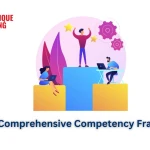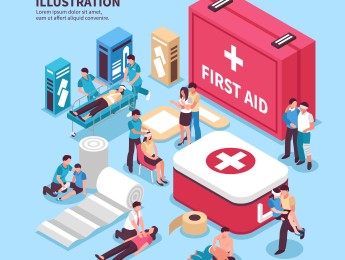Senior management competency development is critical to ensuring effective leadership within organisations. This process involves targeted initiatives to enhance senior leaders' skills, knowledge, and capabilities.
These development areas often focus on various competencies, including strategic thinking, decision-making, communication, and change management. By investing in senior management competency development, using executive education, mentorship opportunities, leadership workshops, and exposure to real-world challenges, organisations can cultivate leaders who are better equipped to navigate complex business landscapes, lead teams with agility, and drive sustainable success.
Senior management competency development benefits individual leaders and contributes to the organisation's overall resilience and competitiveness in today's dynamic and fast-paced business environment.
Upon completion of this course, participants will be able to:
- Develop a comprehensive understanding of the senior leaders' responsibilities in guiding the organisation's overall leadership and effective management.
- Gain insights into inspiring, influencing, and fostering high-performing teams for enhanced organisational effectiveness.
- Evaluate the fundamental elements of competencies and distinguish the nuances between each.
- Create a competency framework and model by extracting essential skills from business plans.
- Implement competencies in the recruitment and selection processes to ensure a well-matched workforce.
- Use competencies to assess training needs, identify talent pools, and formulate succession plans.
- Acquire strategic leadership and management skills to elevate team performance to new heights.
- Demonstrate confidence in deploying a variety of effective management techniques and tools.
This course is designed for anyone responsible for training and developing effective managers within a company or people inspired to develop on their own management journey. It would be most beneficial for:
- Business Owners
- Executives
- Directors
- Line Managers
- Operations Managers
- Supervisors
- Team Leaders
- Project Managers
- Finance Managers
- IT Managers
- Trainee Managers
- HR Managers
This course uses a variety of adult learning styles to aid full understanding and comprehension. Participants will view real-world scenarios and case studies on videos to determine the best and worst ways to handle practical situations as a manager. They will review various management tools in order to prepare them for important decision-making and financial issues.
They will also undergo group activities to understand the impact of their decisions on the environment, economy and the wider business to emphasise the importance of planning and effective project management. They will then take part in role-playing activities in order to deal with difficult situations and improve communication skills to attract and negotiate with key stakeholders.
Day 5 of each course is reserved for a Q&A session, which may occur off-site. For 10-day courses, this also applies to day 10
Section 1: What it Takes to Be a Strategic Leader
- Strategic leadership fundamentals.
- Developing vision and mission statements.
- Decision-making in leadership.
- Leading change effectively.
- Emotional intelligence for leaders.
- Building high-performing teams.
- Strategic communication skills.
- Innovation and creativity in leadership.
- Stakeholder management for leaders.
- Personal development for strategic leadership.
Section 2: Implementing Change Management
- Change management principles.
- Assessing organisational readiness for change.
- Stakeholder engagement and communication.
- Creating a change management plan.
- Leadership's role in change implementation.
- Managing resistance to change.
- Monitoring and evaluating change initiatives.
- Building a change-ready culture.
- Technology and change implementation.
- Continuous improvement in change management.
Section 3: Leading a Team
- Effective communication in team leadership.
- Building and motivating high-performance teams.
- Conflict resolution and team dynamics.
- Decision-making for team leaders.
- Empowering and developing team members.
- Leading virtual or remote teams.
- Diversity and inclusion in team leadership.
- Performance management and feedback.
Section 4: Focusing on Positive Results
- Positive results mindset.
- Goal setting for success.
- Performance metrics and measurement.
- Positive leadership techniques.
- Cultivating a positive work environment.
- Overcoming challenges with a positive approach.
- Motivating teams towards success.
- Celebrating achievements and milestones.
- Continuous improvement for positive outcomes.
- Resilience in the face of adversity.
Section 5: Understanding the Customer Journey
- Customer needs analysis.
- Improving customer interactions.
- Personalization in customer experiences.
- Measuring customer satisfaction.
- Feedback and customer insights.
- Omnichannel customer engagement.
- Customer retention strategies.
Section 6: Strategic Analysis & Financial Management
- Strategic financial planning.
- Cost control and budgeting.
- Investment appraisal techniques.
- Risk management in finance.
- Financial modelling for decision-making.
- Capital structure and funding choices.
- Strategic management accounting.
- Performance measurement and key metrics.
- Mergers and acquisitions in strategic finance.
Section 7: Becoming An Effective Leader
- Building and leading high-performance teams.
- Decision-making and problem-solving in leadership.
- Emotional intelligence for leaders.
- Leading change successfully.
- Conflict resolution and collaboration.
- Ethical leadership and corporate responsibility.
Upon successful completion of this training course, delegates will be awarded a Holistique Training Certificate of Completion. For those who attend and complete the online training course, a Holistique Training e-Certificate will be provided.
Holistique Training Certificates are accredited by the British Assessment Council (BAC) and The CPD Certification Service (CPD), and are certified under ISO 9001, ISO 21001, and ISO 29993 standards.
CPD credits for this course are granted by our Certificates and will be reflected on the Holistique Training Certificate of Completion. In accordance with the standards of The CPD Certification Service, one CPD credit is awarded per hour of course attendance. A maximum of 50 CPD credits can be claimed for any single course we currently offer.
- Course Code MG2-175
- Course Format Classroom, Online,
- Duration 5 days









